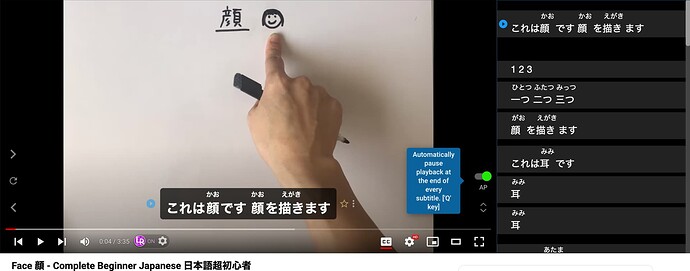I find a mix of listening at my level/definitely can understand (Japanesepod101, Japanese with Shun podcast sped up a bit) and things that are a challenge (normal youtube vids, anime etc) really helpful, as it’s really gratifying understanding and being able to focus on the few small things I don’t understand, and then letting the more advanced waves was over me and try to pick up what I can! it seems like a good balance.
I also most days listen to the Bunpro example sentences before reading them to check my comprehension. Love that there are so many for both grammar points and vocab.
If you’re using ChatGPT free it’s really dodgy; it’s not cheap to pay for the upgraded version and I do so for work reasons but it’s much better and there are custom Chats, such as “Japanese Proofreader” by Taiichi Hirano that’s trained to answer questions on Japanese grammar and goes into pretty amazing detail explaining things I come across or want to write in my journal. I can also feed it a grammar point and what I’m trying to say and it’ll give me that, or answer questions about nuance.





 . I spent hours but they didn’t get what I meant. Others have understood it immediately, though, so I don’t know. I don’t want to mess up explaining it on the internet where it might do more harm than good.
. I spent hours but they didn’t get what I meant. Others have understood it immediately, though, so I don’t know. I don’t want to mess up explaining it on the internet where it might do more harm than good. . I’m probably just the extreme example of a brain that adapts too well to passive input, but it’s why I always make sure to point out that the passive thing does not work for everyone, (also listening to audio while sleeping.) Fo
. I’m probably just the extreme example of a brain that adapts too well to passive input, but it’s why I always make sure to point out that the passive thing does not work for everyone, (also listening to audio while sleeping.) Fo